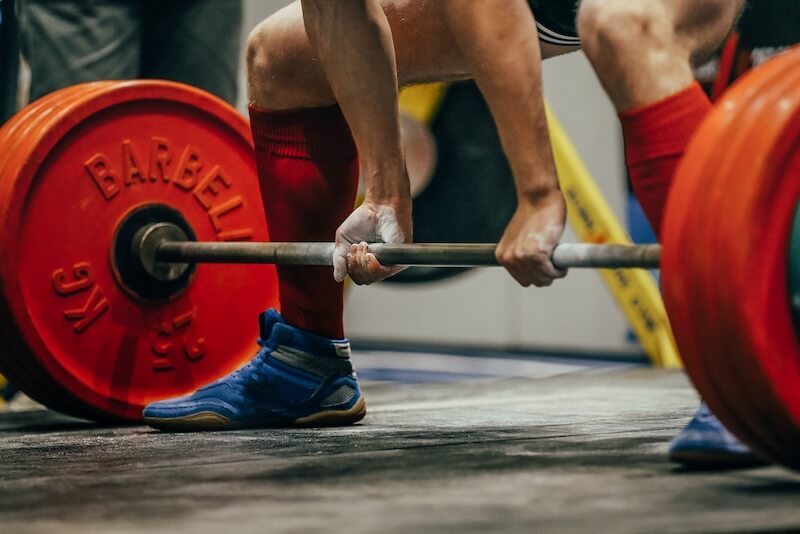
Branched-chain amino acids, also known as BCAAs, are a popular supplement in the fitness industry, and for good reason.
BCAAs have been associated with many benefits in muscle growth, recovery, and injury prevention, but many don’t know when the right time to take BCAAs is, so let’s break it down.
Understanding BCAAs
Before you understand when to take BCAAs, you need to understand what they are and what they do.
What are BCAAs and their key components
BCAAs are a group of essential amino acids that contain a branched-chain chemical structure, hence the name. They are essential because your body is not able to make them so you must obtain them from food sources.
Your BCAAs are leucine, isoleucine, and valine and they are found in many food sources including meat, fish, poultry, eggs, dairy, nuts, seeds, and beans. Although they are readily available in many food sources, BCAAs tend to be in low amounts in these foods and can be difficult to track which is why supplements in more concentrated forms have become popular [1].
How BCAAs support muscle protein synthesis and reduce muscle breakdown

BCAAs, leucine in particular, is believed to help stimulate muscle-protein synthesis, which is the act of building new muscle tissue. It’s also believed to help reduce muscle breakdown by intervening with a pathway that causes muscle degradation [2, 3].
The combination of aiding in creating new muscle and preventing the loss of current muscle is why BCAAs are believed to be so impactful for muscle growth and recovery.
It is important to note that most studies have found that BCAAs are not effective unless you are obtaining adequate protein as well. BCAAs are just 3 of the 9 essential amino acids required for muscle growth [4].
Timing Considerations for BCAA Supplementation

Most people find benefit in taking BCAAs either before, during, or after their workout but there are a few things to consider in regards to timing your BCAA supplements.
Benefits of taking BCAAs before workouts
Taking BCAAs before or during a workout helps to provide your muscles with immediate amino acids to use to help reduce the breakdown of muscle during exercise and to help delay fatigue for a heartier workout.
One small double-blind pilot study found that repeated BCAA supplementation before a workout had more benefits on attenuating muscle soreness and exercise-induced muscle damage than supplementation after a workout [5].
However, if you have had a protein-rich meal or snack within 2 hours of your workout, this may provide the same effects, making the timing of your BCAAs less important [6].
Advantages of post-workout BCAA intake
Taking BCAAs post-workout may be more beneficial for providing a jump start in recovery and a reduction in muscle soreness.
Regardless of taking BCAAs shortly before or after exercise, the research suggests the benefits on muscle growth and strength are the same and there is very limited research on taking BCAAs during exercise [7].
When it comes down to it, there is no solid research that supports a given time frame to take BCAAs at this time other than around the time of exercise.
Other Factors Influencing When to Take BCAAs

While timing BCAAs around the time of your workout might be beneficial, there are other factors that may help you determine the best time to take your BCAA supplement.
Impact of training intensity and workout duration
Although the argument is usually whether or not BCAAs should be taken before or after exercise, under certain circumstances they may be better to take during exercise. This is particularly true if you are an endurance athlete.
For higher intensity workouts that are longer in duration, taking supplemental BCAAs during exercise may be more beneficial than before or after as it can help to prevent muscle breakdown which occurs more rapidly during this time [8].
Combining BCAAs with Other Supplements or Meals

BCAAs are just 3 of the 9 essential amino acids your body needs to build muscle. Ensuring you are making supportive dietary choices will help you get more out of your BCAA supplement.
Pairing BCAAs with protein shakes or meals for synergistic effects
As mentioned earlier, if you get a protein-rich meal or snack in a few hours before your workout the timing of your BCAAs may be less important. However, pairing BCAAs with a protein shake or protein-rich meal could provide synergistic effects.
While most protein foods and supplements contain BCAAs, the amount is a lot smaller than you would find in a supplement. Combining this with protein-rich foods to get a good dose of the other 9 essential amino acids can help to boost muscle growth and recovery more than taking BCAAs alone.
Practical Tips and Recommendations
If you are new to taking BCAAs, there’s a few things to keep in mind.
Dosage guidelines and common recommendations
BCAA supplements need to be taken daily, even on non-workout days, to achieve the maximum benefit. Dosing is dependent upon body weight, typically 200mg per kilogram of body weight per day.
Splitting your dose throughout the day may also be beneficial, but research on this is also limited. For example, if you are taking 15,000mg of BCAAs daily, splitting that into 3 doses of 5,000mg for breakfast, lunch, and dinner could help you get better results.
The theory behind this is you are steadily feeding your body BCAAs for optimal muscle recovery and growth.
TLDR
BCAA supplements are associated with many potential benefits including muscle growth, recovery, and injury prevention. While the research on this is promising, choosing a protein-rich diet that includes all 9 essential amino acids (instead of just 3 branched-chain amino acids) may be more beneficial.
Whether you prefer to take your BCAA supplement before, after, or during exercise, they may all be equally as effective as long as you are also ensuring to prioritize protein-rich foods in your diet.


